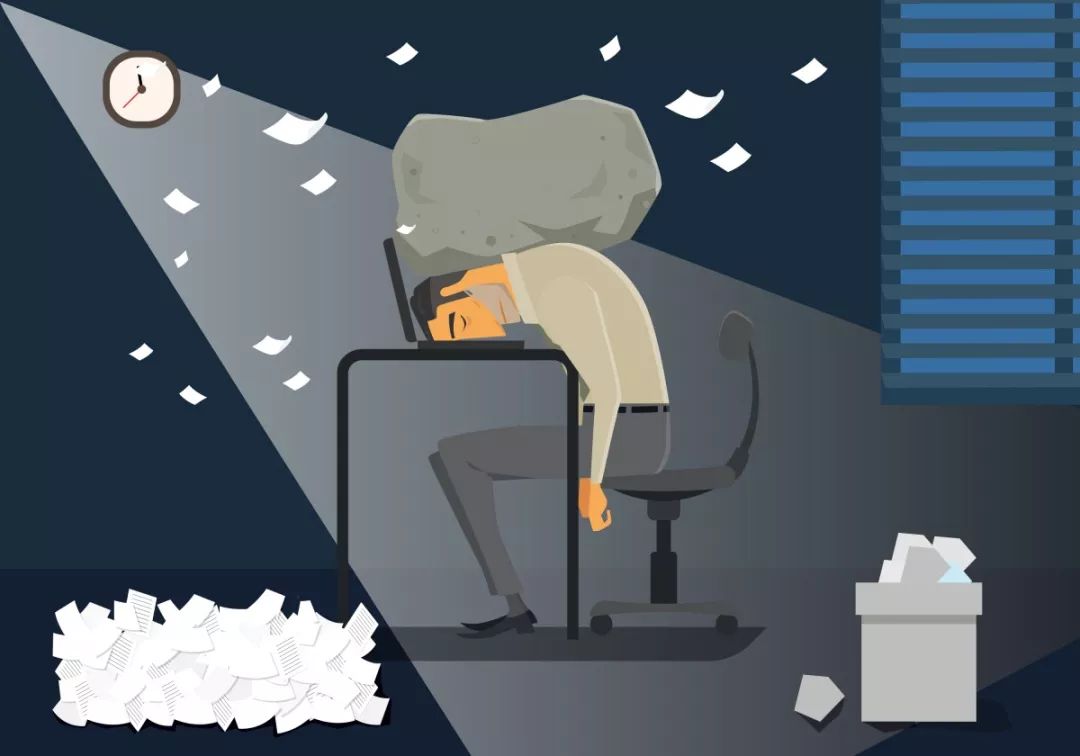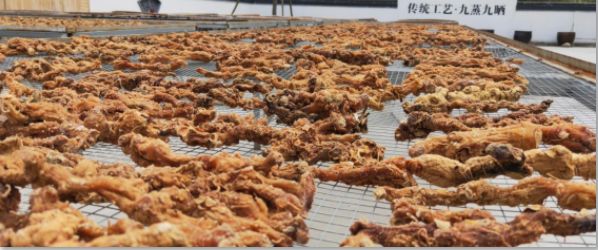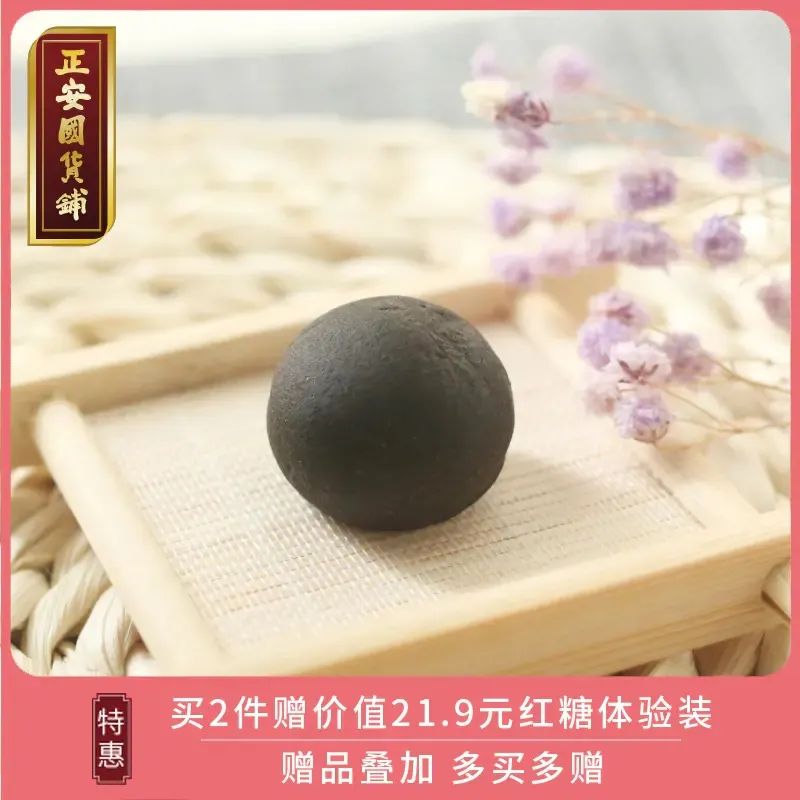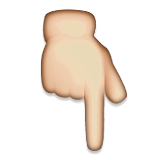Introduction
Are you experiencing ‘Yin Deficiency’ due to excessive mental strain, late nights, and prolonged depletion of Yin essence?
01
What is the essence of ‘Yin Deficiency’?
People often mention ‘Yin Deficiency’ and ‘Yang Deficiency’, but few truly understand their meanings. Today, let’s discuss ‘Yin Deficiency’.
What is Yin? According to the Shuowen Jiezi, Yin is associated with darkness. It is located south of water and north of mountains. The ancients believed that things that are relatively still, inward, descending, condensed, cold, obscure, and suppressive belong to Yin.
When we introduce the concept of Yin into the medical field, it refers to all things and phenomena that are internal, downward, and possess characteristics of stillness, condensation, tranquility, coolness, suppression, and descent.
So, what is ‘Yin Deficiency’?
‘Yin Deficiency’ refers to the relative decline of Yin. In the human body, essence (jing), blood (xue), and body fluids (jinye) are all considered Yin. Therefore, the pathological phenomenon that occurs when there is a deficiency of essence, blood, and body fluids is called Yin Deficiency.
Traditional Chinese Medicine (TCM) believes that Yin and Yang are interdependent and fundamental to each other. When the body’s Yin energy is insufficient, the Yang that depends on it becomes relatively excessive, leading to a relatively accelerated metabolism. Thus, the clinical manifestations of Yin Deficiency often include symptoms of ‘excess heat’.
The essence of ‘Yin Deficiency’: Insufficient Yin energy, inability of Yin to restrain Yang, and relative excess of Yang energy leading to false heat syndrome.
02
Excessive mental strain, late nights, and a preference for spicy foods
What else can harm Yin?
The main causes of Yin Deficiency are often prolonged illness or heat illnesses that lead to the internal consumption of Yin fluids.
However, in modern society, Yin Deficiency is also common among young people who consider themselves ‘healthy’. This is partly due tomental strain from work, which depletes Yin fluids; and partly due tolong-term late nights. Many college students and office workers often go to bed at midnight, and those who frequently stay up late are prone to Yin fluid depletion.

Image source: Shetu Network
In addition to work and lifestyle,poor dietary habits can also lead to Yin Deficiency. Spicy foods like hot pot, barbecued dishes, and crayfish are very popular among modern people, and they often indulge in these foods.
Eating spicy foods is not a problem in places like Sichuan and Chongqing, which are cold and humid. However, in the dry northern regions, frequent consumption of spicy foods can harm Yin. In the humid and hot southern regions, during winter, when the body’s Yang energy is internalized, eating too much spicy food can easily lead to mouth ulcers and excess heat; during the hot and humid summer, it is even more advisable to avoid spicy foods and stick to a light diet.
03
How to determine if you have ‘Yin Deficiency’?
Yin energy deficiency primarily manifests as a reduction in the functions of coolness, suppression, and tranquility, with Yin unable to restrain Yang, leading to relative excess of Yang energy.
‘Yin Deficiency leads to heat‘, simply put, this means that due to insufficient body fluids, heat cannot be suppressed, resulting in symptoms such as five-center heat (wuxin fanre), afternoon tidal heat, low-grade fever, night sweats, flushed cheeks, weight loss, dry mouth and throat, constipation, irritability, and a red tongue with little coating.
Among these symptoms, the most significant isa red tongue with thin or even no coating. (Here, ‘heat’ refers to false heat, which is different from true heat.)
Clinically, the heat of Yin Deficiency is due to deficiency leading to heat, with obvious deficiency signs, while ‘true heat’ is primarily characterized by heat without obvious deficiency signs.
Yin Deficiency can also present in various forms such as Yin Deficiency with excessive fire and internal heat. How can we self-assess?
Internal heat due to Yin Deficiency: Commonly seen as systemic signs of false heat, such as five-center heat, bone steaming tidal heat, facial flushing, weight loss, and night sweats.
Excessive fire due to Yin Deficiency: Commonly seen as localized heat signs in specific body parts, such as toothache, gum bleeding, and throat pain caused by excessive fire.
04
Daily management strategies for ‘Yin Deficiency’
The Kidney Yin is the foundation of all Yin in the body. Yin energy deficiency can occur in all five zang organs and six fu organs, such as Lung Yin, Spleen Yin, Stomach Yin, Liver Yin, Heart Yin, and Kidney Yin, but generally, Kidney Yin deficiency is predominant.
Therefore, individuals with Yin Deficiency should focus on nourishing Kidney Yin in their daily management.
(1) Ensure adequate rest and sleep
Individuals with a constitution of Yin Deficiency often experience relative excess of Yang energy due to insufficient Yin fluids, leading to a state of irritability and hyperactivity.After falling asleep, the body’s Yang energy contracts, allowing Yin fluids to nourish the body, so it is recommended for those with Yin Deficiency to adjust their schedule to ensure adequate rest and sleep.
The balance of Yin and Yang in the kidneys is fundamental to the body’s Yin and Yang. Excessive indulgence can easily damage Yang and harm Yin. Even healthy individuals need to practice moderation in sexual activities, and those with Yin Deficiency should pay more attention topreserving Yin and essence.
Additionally, the Ben Cao Hui Yan records tobacco as bitter and pungent, hot, and toxic; the Bie Lu states that alcohol is bitter, sweet, pungent, very hot, and toxic. Long-term smoking and drinking can easily generate internal heat,so it is advisable for individuals with Yin Deficiency to quit smoking and drinking.
(2) Start with dietary therapy to nourish Yin
Individuals with Yin Deficiency are prone to excess heat and dryness, so they should avoid warm, dry, spicy, and strongly aromatic foods: such as chili, Sichuan pepper, leeks, cilantro, scallions, ginger, garlic, alcohol, fried, and stir-fried foods.
For excess heat caused by Yin Deficiency, nourishing Yin herbs can provide immediate relief,such as Huang Jing (Polygonatum sibiricum). Let me introduce it to you.
Huang Jing is neutral in nature and sweet in flavor, entering the Spleen, Lung, and Kidney meridians, and is a well-known herb for nourishing Yin and tonifying Qi.
Li Shizhen emphasized in his work Ben Cao Gang Mu its effectiveness intonifying deficiencies, replenishing essence, and harmonizing Qi and blood.
The book Interesting Chinese Herbs also states: Huang Jing is sweet in flavor, neutral in nature, enters the Spleen, Lung, and Kidney meridians, and functions totonify Qi and nourish Yin, strengthen the Spleen, moisten the Lung, and benefit the Kidney. It is used for Spleen and Stomach deficiency, fatigue, dry mouth, reduced appetite, Lung deficiency with dry cough, insufficient essence and blood, and internal heat leading to thirst.

Some may ask, what is the difference between Huang Jing and black sesame and mulberries, which also nourish Yin?
Huang Jing enters the Shaoyin Kidney meridian and is more effective in nourishing Kidney Yin than mulberries and black sesame.Mulberries are particularly effective in nourishing the Liver and Kidney, dispelling wind and dampness, and promoting hair health, but they do not affect the Middle Jiao. Black sesame nourishes Kidney Yin while also entering the Large Intestine meridian, which is used to improve constipation.
Huang Jing not only nourishes Lung and Kidney Yin but also tonifies Spleen Qi and Spleen Yin, and its properties are mild, neither warming nor drying, making it an excellent choice for tonifying Qi and Yin.Clinically, Huang Jing is often used in combination with Goji Berries (Gou Qi Zi) for the treatment of thirst (diabetes) and Kidney deficiency with insufficient essence.
Due to Huang Jing’s mild effects, it is suitable for long-term use in decoctions. It is appropriate for those with chronic cough, dry cough, emaciation, shortness of breath, and dry mouth and throat. Huang Jing has the effect of strengthening the Spleen and benefiting Qi, making it suitable for those with Spleen and Stomach deficiency.
While Huang Jing is excellent, the quality of the medicinal material is even more crucial. It is essential to draw from the unique local soil, rainfall, and sunlight, and undergo the process of nine steams and nine sun-dryings to enhance its Yin-nourishing and tonifying effects.
▼ Recommended local products ▼
Jiuhua Mountain Authentic Nine Steams and Nine Sun-Dried Huang Jing Pills

 Or clickRead the original text to purchase quality products
Or clickRead the original text to purchase quality products

